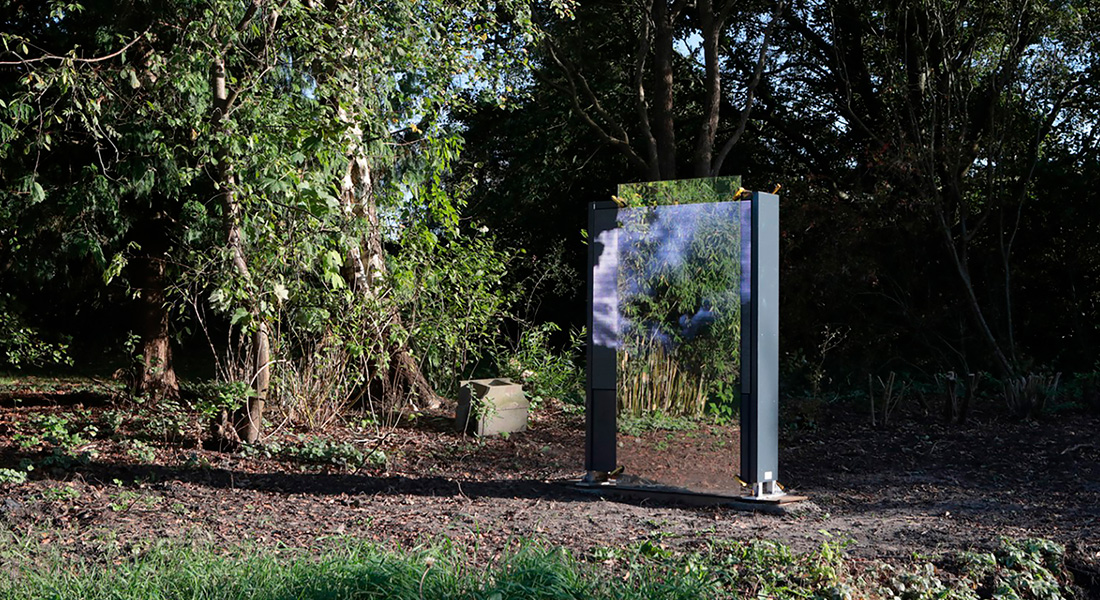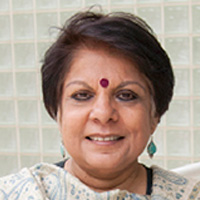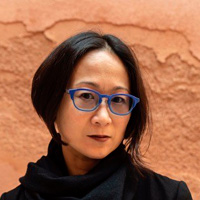Rethinking Transcultural Interactions in Visual Art
This conference focuses on the transcultural turn in art history by examining its theoretical, methodological, and analytical potentials and limits. Transcultural approaches aim to broaden the notion of “art” by proposing new frameworks for understanding the complex flows of people, objects, and ideas that circulate around the globe.
The conference features two public keynotes where no registration is needed. To attend the rest of the conference, please register below.

For this small-scale, workshop-based conference at the University of Copenhagen, we have invited ten individuals to present their research or artistic and curatorial practices that deal with transcultural approaches within modern or contemporary art. We invite you to join this two-day event and contribute to the unfolding discussions and knowledge production. We have limited the number of participants to 50 persons to have engaged and committed discussions. You can read about the speakers below.
Two keynote presentations will end each day and will be open to a larger number of audiences.
Registration
Free admission. However, seats are limited, so please sign up before 1 April 2024.
The concept of transculturality has become an important term when seeking to critically investigate the conventions of canonical Western art history, aesthetic hierarchies, and value systems. A transcultural approach looks at the flows of people, objects, and ideas that circulate the globe as part of migration, capitalism, and tourism. These flows impact one another in unpredictable and multidirectional reciprocities. It is therefore important to look at power relations in the processes of entangled global interactions: who is involved, who is left out, and what kind of interactions and relations are at stake. Transcultural approaches may also have the potential to capture elements that have been invisible, ignored, or suppressed in conventional art history research.
A transcultural approach seeks to transgress the conventional notion of culture as a delimited and fixed set of practices within certain geographical areas or predefined gendered, racialized, or ethnic groups. Similarly, a transcultural viewpoint dismisses the idea of a specific cultural essence because cultures have always interacted with other cultures and therefore are always already hybrid.
We welcome presentations on postcolonial and feminist art research perspectives, or with a focus on migration, diasporic communities, and issues of racialization. Papers can deal with mapping transcultural interaction and focus on individual artists or movements, or focus on institutions, archives, and infrastructures. We also appreciate papers on transcultural approaches as theory and method as a means to qualify and challenge the transcultural as a concept in visual art.
The TRAM project presents two internationally acclaimed scholars in transcultural interactions and global art history. The talks will include questions about cultural colonization or appropriation, of emic and etic concepts and practices. They will discuss what it means to do global art history when it is on fire. The keynote presentations are open to all – no registration is needed.
 Monica Juneja
Monica Juneja
What, when, where was art? Tracking the routes of a transcultural concept
Today we witness an endless proliferation of cultural productions that have come to be called art. The expanding limits of the term go hand in hand with its global uses in seemingly similar ways. Contemporary practices of collecting, curating, displaying, and writing which proliferate across continents through biennials, art journalism, and the art market have facilitated a ubiquitous usage of a single notion in a plurality of cultural contexts – raising predictable questions about cultural colonization or appropriation, about emic and etic concepts and practices. Can the same term be applied to societies across time and space, many of whom might not have had a word to spell out what we today understand as art? My lecture addresses these issues by looking at the concept of Art (with a capital “A”) as a way of categorizing and making knowledge. The right to define something as “art” was reserved to selected authorities that laid down the criteria for entry into this privileged domain. Tracking the transcultural trajectories of art as it travelled to contexts away from Europe asks that we attend to those processes by which a concept disconnects from its original moorings while taking roots in new linguistic and cultural settings. As new configurations reactivate and remediate existing understandings, they can equally engender frictions within a single locality. Transculturation as a theoretical frame, I show, opens the way to studying a concept not confined to a single location. It enables us to pluralize temporalities, and to account for resignifications as well as conflicts.
Place: South Campus, Auditorium 23.0.49
Keywords: art, transculturation, conceptual history, teleology, resignification

Ming Tiampo
Worlding Public Cultures: Reimagining Forms For a World in Crisis
What does it mean to do global art history when the world is on fire?
This lecture reflects upon the four-year project Worlding Public Cultures, which brought together anthropologists, art historians, artists, curators and digital humanists from five cities (Amsterdam, Heidelberg, London, Montreal, and Ottawa) to think critically and collaboratively about the global from multiple perspectives. Over the course of the project, the planet went through profound shifts – a global pandemic, a global racial reckoning, a global resurgence of ethno- and xenophobic nationalisms, wars of liberation and wars of aggression. This combination of interdisciplinarity and crisis on a global scale shifted the stakes of the project from being a largely disciplinary inquiry to one that embraces the project of worlding as a practice of making worlds, not just mapping them.
Departing from Martin Heidegger’s use of worlding to theorize the work of art as constitutive of worlds (Heidegger, 1950), this lecture takes seriously Gayatri Chakravorty Spivak’s postcolonial critique of worlding as a potential force of conquest, decimating Indigenous life worlds (Spivak, 1985). More generative, however, is Pheng Cheah’s interpretation of worlding as a normative force, imagining what “ought to be,” and opening the possibility of literature (but also art) functioning as “an active power in the making of worlds” understood in his work against the frameworks of global capitalism (Cheah, 2016). Bringing together Spivak’s critique with Cheah’s cautiously hopeful constructivism, this lecture argues for art and art historical practice that makes worlds through a constant process of deworlding and reworlding.
In short, this lecture proposes that global art history needs to be more ambitious, thinking not just about what and how to include in our narratives and canons, but fundamentally rethinking the methods, objects, and aims of global art history. In this context, making is interrogated as more than just an artistic practice, and forms as more than visual expression. In worlding beyond Western epistemologies, this lecture posits the possibility of pluriversal worldings that make art, make objects, make music, poetry, movement; make alliances, solidarities, friends; make amends, reparations; make histories, archives, exhibitions, pedagogical platforms, public discourse… and make more just and equitable worlds.
Place: South Campus, Auditorium 22.0.11
Keywords: worlding, pluriversal, publics, crisis, justice
Monday 15 April
Tuesday 16 April
| 10:00-10:15 | Gunhild Borggreen & Mette Højsgaard | Welcome back |
| 10:15-11:30 | Marcia Harvey Isaksson. The Threshold is a Prism. Tijana Mišković. Repairing Broken and Creating New Transcultural Connections: How Contemporary Artists with Migrant Backgrounds Forge Transcultural Connections in Diverse Cultural Environments. |
Session 4 |
| 12:30-13:45 | Eugenia Bogdanova Kummer. Zen of Book: Visual Dialogues on Zen Buddhism between Hisamatsu Shin’ichi, Martin Heidegger, Morita Shiryū and L. Alcopley. Birgit Hopfener. A pluriversal conceptual framework: Opening and decolonizing the terms of our conversations about contemporary art. |
Session 5 |
| 14.30-16:00 | Ming Tiampo. Worlding Public Cultures: Reimagining Forms For a World in Crisis. | Keynote |
| 16:00-17:00 | Reception |
Organizer
Transcultural Modernism: Artistic Interchange between Denmark and Japan, 1945-1970 (TraM)
For further questions, please contact transcultural@hum.ku.dk
Map of South Campus
View directions.
View on map of the Faculty of Humanities - South Campus.
View map of South Campus (pdf).

